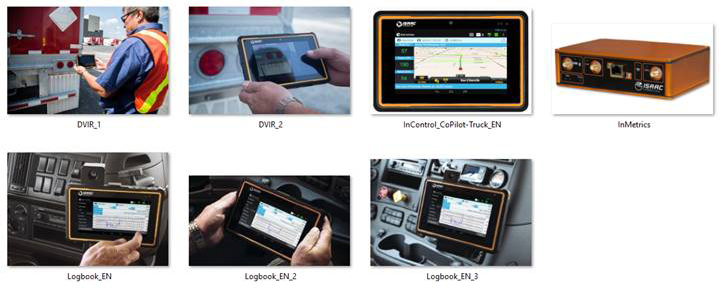
Click HERE to see the Isaac Instruments ad in the Fall 2018 issue.
July 20, 2017 – News Release
Using Big Data to Build Reliable Business Intelligence
Over the past few years, technology has evolved when it comes to connected devices and the endless possibilities surrounding the Internet of Things (IoT). But what does it mean for the trucking industry? Can big data have a significant impact on a fleet’s operations? Absolutely, but a system must be able to transform raw data into actionable information and integrate it with the company’s different information systems.
From Raw Data to Gaining Insight
A significant amount of data can be collected from trucks in operation. Engine torque, RPM, vehicle speed, transmission gear, and cruise control usage to name a few, are parameters a telemetry recorder can monitor. Big data can be complex, ambiguous and overwhelming. In itself, it has no practical use.
“The true power of telemetry emerges when data is analyzed and transformed into actionable information,” said Jacques DeLarochellière, president of ISAAC Instruments, a company whose expertise lies in telemetry and telematics. For instance, the load a driver is assigned influences fuel consumption. The heavier the load, the higher the consumption, given that all other factors are identical. Therefore, measuring driver performance based solely on fuel efficiency is inappropriate.
So how can the driver’s performance be correctly measured? Factors such as traffic, truck model, route type and load, have a direct impact on fuel efficiency, but are out of a driver’s control and should not be considered for measuring performance.
Focus must be given to actions drivers perform behind the wheel. Braking, accelerating and changing gears, for example, have an immediate effect on fuel efficiency. By using telemetry data, it is possible to improve on how and when these actions are performed. “Our system coaches drivers in real time so they can perform appropriate acceleration, anticipation and other maneuvers under their control that have a significant impact on fuel economy,” added DeLarochellière. 
A Step Further
To get the full benefit of big data, it must be fully integrated with the company’s different information systems. “Accessing this information is a challenge some suppliers have yet to overcome,” said DeLarochellière.
When a diagnostic trouble code (DTC) occurs while the truck is on the road, the fleet manager should automatically be notified so he can take prompt and appropriate action. Should the truck pull over to prevent a major breakdown or can the repair wait until it returns to the terminal? A quick look at the telemetry data provides this information and helps determine if another tractor is required to complete this trip, in order to remain on schedule and meet the client’s expectations.
For Claude Robert, Chairman of Groupe Robert’s Board of Directors, accessing this operational information plays a major role in the company’s success. “Employees don’t always have their eyes fixed on their computer screen. When pushing the information instantly to the right manager, the right decision is made quickly.”
Leading the Way
To be successful, transport companies need to use the data at their disposal to make informed decisions. Doing so not only lets them operate more efficiently, but also grants them a considerable competitive advantage.
There is no such thing as too much data, but efficient tools are essential to transform this data into business
intelligence.


 1-866-985-9791
1-866-985-9791


